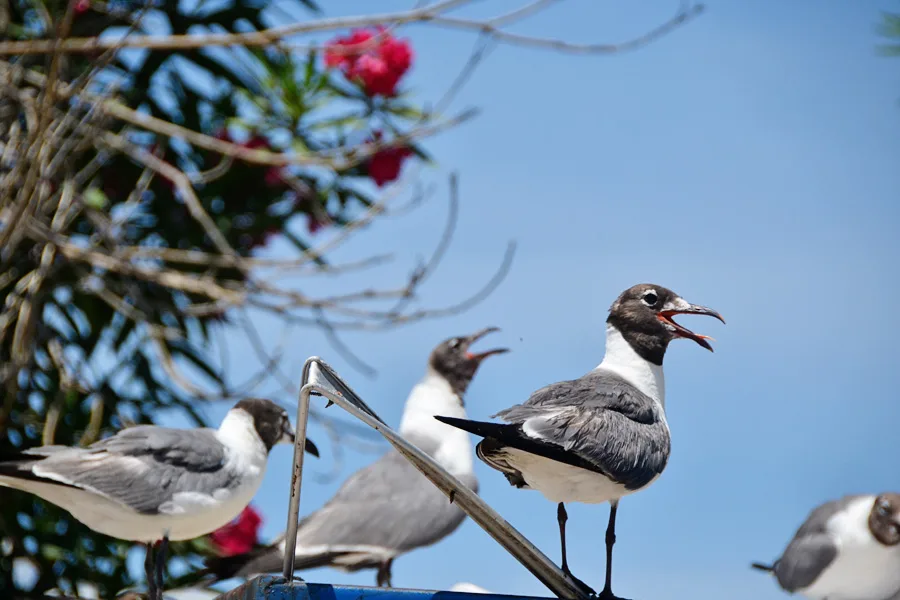I love to see gulls on our trips (and occasionally, some make it as far as central Texas to hang out near the lakes). I love their calls and just watching the groups of gulls busily go about their day.
Many people often dismiss gulls as mere scavengers. However, these adaptable seabirds carry rich symbolic meanings across various cultures and historical contexts. From being seen as messengers of the gods to symbols of freedom and resourcefulness, many cultures have attributed special meaning to seeing a gull (other than perhaps you’re lucky enough to be enjoying a vacation at the beach!) Let’s look at the different meanings that have been attributed to gulls around the globe.

Cultural Symbolism of Gulls
In Native American folklore, particularly among coastal tribes, gulls are often seen as messengers who carry communications between the physical and spiritual worlds. They are revered as totems of resourcefulness, adaptability, and survival.
Gulls are believed to help navigate through difficult times, showing a keen intelligence and a connection to the water element which is deeply symbolic of emotion and intuition.
In Celtic symbolism, gulls are associated with the transition between life and death. They are believed to ferry souls to the afterlife, serving as guides to the other world. This connection likely stems from their hovering over sea waters, which were believed to be a veil between the living and the spiritual realm.
For sailors, seeing a gull has traditionally been a good omen, indicating that land is near. Gulls are also seen as embodiments of freedom and the unfettered spirit of the ocean. Their ability to soar high and ride the sea winds effortlessly conveys messages of exploration, freedom, and navigating through life’s trials with grace and ease.

Symbolic Meanings Through History
The symbolism of gulls has varied through history. In ancient times, they were often seen as omens. Positive interpretations included guidance, hope, and new opportunities, aligning with the sailors’ beliefs. However, in some seafaring stories, gulls were sometimes considered bad omens, particularly if they were seen far from shore, indicating storms or rough waters ahead.
Modern Perceptions
Today, gulls are often symbols of adaptability and intelligence. Their presence in both coastal and urban areas, where they have learned to thrive, underscores themes of survival and taking advantage of opportunities, regardless of the environment.

Dreaming of a Gull
To dream of a gull is often interpreted as a sign of freedom and a desire to escape from life’s current stresses. It could symbolize:
- An Exploration of New Horizons: Looking to new opportunities or ventures.
- A Need for Adaptation: Adjusting to a new environment or changing one’s perspective.
- Spiritual Messaging: Receiving guidance on how to navigate one’s path.
Finding a Dead Gull
Finding a dead gull can have a profound symbolic impact. Traditionally, this might be seen as a bad omen, suggesting a coming difficulty or the end of a prosperous period. It may also invite reflection on missed opportunities or the need to let go of something that no longer serves you.
Gulls are complex symbols in cultural mythologies, reflecting diverse meanings from spiritual messengers and guides to omens of change. Their presence, whether in waking life, dreams, or even in their death, can carry significant symbolic weight, urging a deeper reflection into personal and spiritual insights.
As with all animal symbolism, the personal significance of encountering a gull can vary greatly and should be interpreted within the context of your own experiences and feelings.
More Posts You Might Like
Raven Symbolism – The Meaning of This Bird Across the Globe
- 8 Letter Bird Names - August 14, 2024
- 7 Letter Bird Names - August 14, 2024
- 7 Birds Named After Famous People - July 23, 2024
